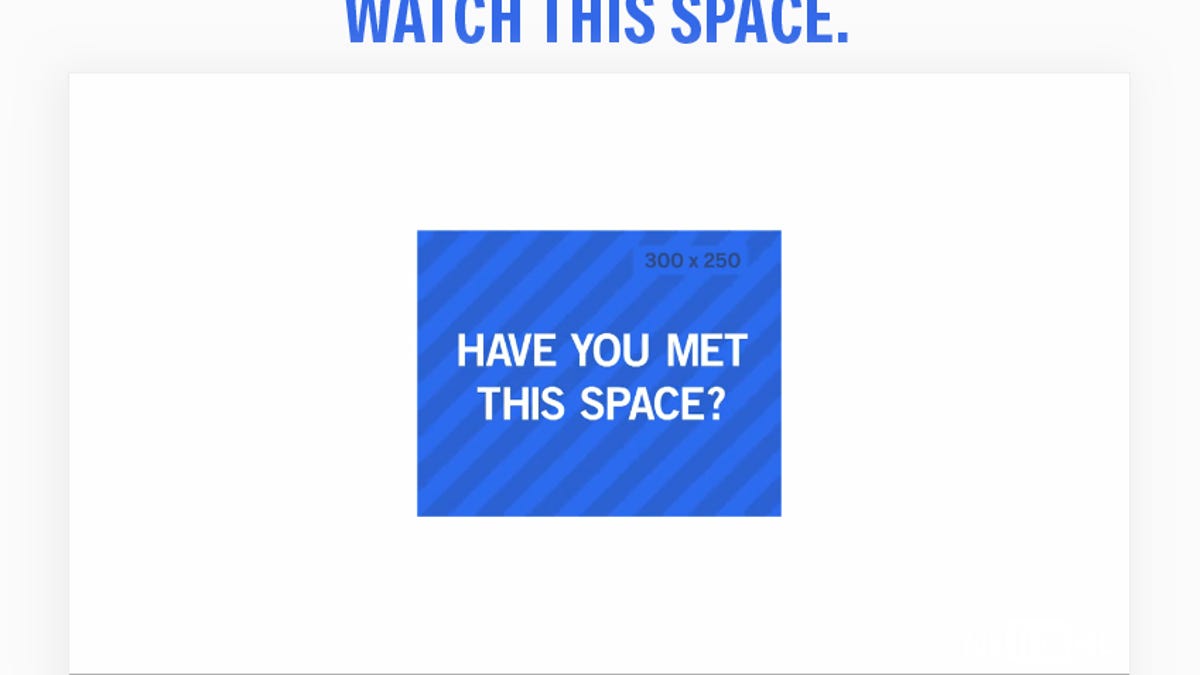Google: We're too sexy for your search
The company delivers a fancy product pitch to Madison Avenue to make sure the ad world gets the message that it's not just about search.

NEW YORK--In the future, run-of-the-mill search ads just won't cut it at Google.
Representatives from Google's display advertising team made a slick pitch to Madison Avenue this afternoon at the Interactive Advertising Bureau's annual MIXX conference, insisting that the short- and long-term strategy at the Mountain View, Calif., powerhouse will be to make display ads as crucial to its business as the search advertisements that propelled it to billion-dollar revenues.
Display advertising is "really front and center" to Google's current product strategy, Vice President of Product Management Neal Mohan explained to the audience, taking the stage alongside Barry Salzman, Google's managing director of media and platforms for the Americas. The two characterized the buzzwords for display ads at Google as "sexy" and "smart"--an attempt to counter the wilting perception of traditional banner ads, which Salzman said "took some of that sexy away."
In the words of Justin Timberlake, Salzman then said that Google's aim is "bringing sexy back." And perhaps to show that it practices what it preaches, Google also installed a physical display ad around the outside of the Crowne Plaza Times Square, along a heavily trafficked stretch of Broadway. It bears the slogan "Watch This Space," which has been Google's chosen tagline for the new display ad promotional campaign.
Both Salzman and Mohan hail from DoubleClick, which Google finally acquired two years ago in a $3.1 billion merger after a long back-and-forth with government regulatory bodies. Google CEO Eric Schmidt has been talking up display ads as an area of future growth for several years now.
Not much was announced in today's MIXX keynote speech (though advertising types likely hadn't seen a lot of the products demonstrated) aside from two new YouTube ad formats called "True View," which allow users to halt a pre-roll video ad after five seconds and will not charge advertisers for unwatched videos.
Whether a user watches a video ad start to finish is "a wonderful signal of whether we picked the right ad for the view," Salzman said. "We think we can show viewers fewer ads, but get more advertiser impact out of every ad view."
Some of the other products it showed off were the still-experimental Google Goggles, which the Google reps demonstrated by hovering the camera on an Android handset over a print advertisement for a car in a magazine and seeing a 3D rendering of the car rather than its two-dimensional counterpart.
The looming milestone for many of Google's display advertising plans is 2015, with Mohan and Salzman spelling out a handful of predictions for the market that may or may not add up to success for Google's lofty plans. Among them: that the display ad market will go from $20 billion to $50 billion, that 50 percent of all targeted ads will use a real-time bidding auction system (Google showed off last year's Teracent buy for this), that 75 percent of ads will be what we now classify as "social" in nature, and that "rich media" will be used in half of all brand campaigns--right now, it's only 6 percent.
Amping up the "sexy" is a message that Google, best-known for finely toned and very lucrative but decidedly un-splashy text advertisements, really has to hit home to the ad industry as digital spending carves out an bigger portion of budgets. The display ads that the industry refers to as "premium" aren't normally thought of as Google territory, and in addition to the likes of Microsoft, Yahoo, and AOL, Facebook has begun to break into the space with its ultra-targeted "engagement ads" and their connections to its successful brand pages product. Apple has begun to take a bite out of the coveted mobile market.
But as Mohan put it, Google is "unapologetically and enthusiastically optimistic about this space."

